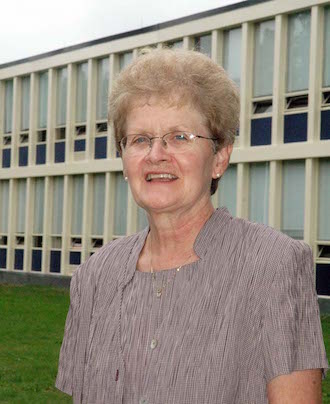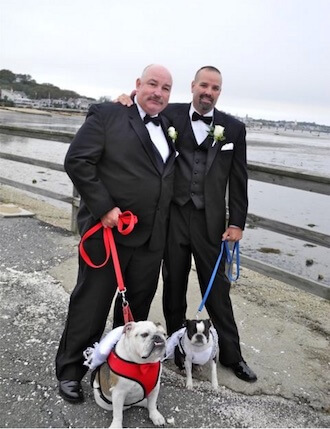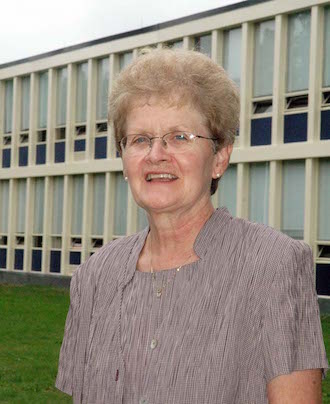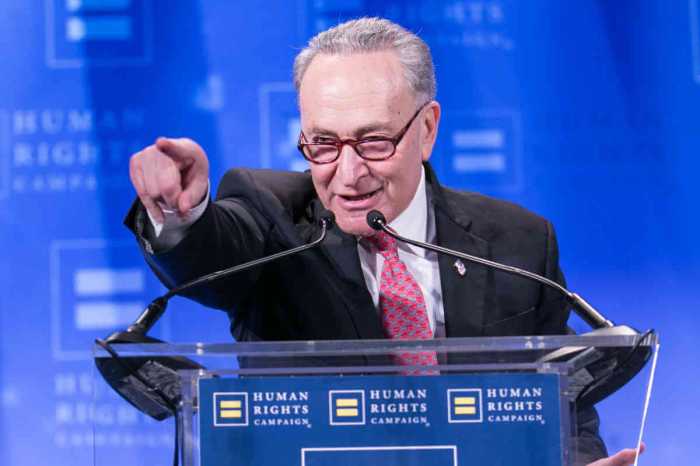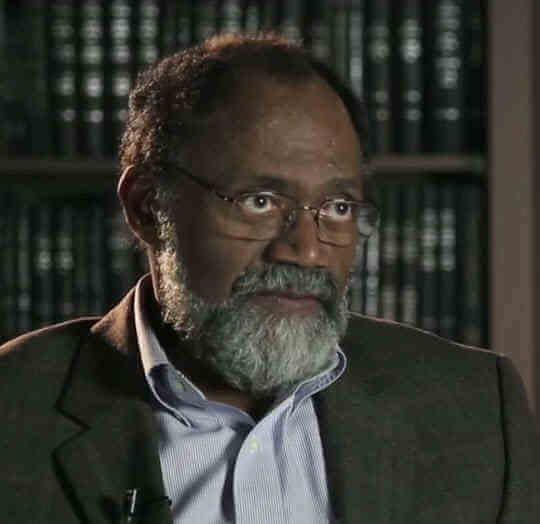BY ARTHUR S. LEONARD | Since marriage equality became legal nationwide, one question that has arisen but not been clearly answered is whether religious institutions can freely discriminate in their employment practices against married gay couples by relying on statutory religious exemptions in anti-discrimination laws or on constitutional claims.
In a case involving a food service worker who lost a job with a Catholic girls school, a Massachusetts trial judge ruled on December 16 that the answer is “no,” at least when it involves a job that plays no educational role at the school.
Massachusetts Superior Court Justice Douglas H. Wilkins had to confront serious issues in interpreting the state’s anti-discrimination law before even getting to the constitutional questions in Matthew Barrett’s challenge to the Fontbonne Academy in the Boston suburb of Milton.
In ruling without appellate precedent, Massachusetts trial court rules against girls prep academy
Barrett, who has more than 20 years experience in the food services industry, applied in June 2013 to be the food services director at Fontbonne, an independently-incorporated Catholic college prep school for girls sponsored by the Congregation of the Sisters of Saint Joseph. Mary Ellen Barnes, the head of school, told Barrett during the hiring process that every employee is regarded as a “minister of the mission” and asked whether he could “buy into” the expectation he would “model Catholic teaching and values.” He said he could and was offered the job, which he accepted.
When Barrett filled out a new employee hire form, listing his “emergency contact” as “Ed Suplee,” whom he indicated was his husband, Barnes called him into a meeting and told him he would not be hired because “he was a spouse in a same-sex marriage, which was inconsistent with the teachings of the Catholic Church.”
Wilkins easily rejected Fontbonne’s argument that it was not engaging in sex or sexual orientation discrimination, but instead simply refusing to compromise its religious principles about same-sex marriage. As have other courts confronted with similar arguments, Wilkins rejected the school’s argument distinguishing status from conduct, finding that the school’s withdrawal of the job offer involved both sexual orientation discrimination and sex discrimination, the latter because if Barrett were female and married to a man, Fontbonne would have no objection to the marriage.
Wilkins then confronted a more serious interpretive problem –– conflicting religious exemption provisions in the state’s anti-discrimination law. When that statute was amended in 1989 to include sexual orientation as a protected category, the religious exemption was broadened to excuse religious organizations where its actions “are calculated by such organization to promote the religious principles for which it is established or maintained.” Older language in the statute, however, accords the exemption only to an organization “which limits membership, enrollment, admission, or participation to members of that religion.”
The record before Wilkins shows that Fontbonne does not impose this limitation in its hiring, except for narrowly defined situations that do not apply to its food services operation. In fact, the school has a formal non-discrimination policy that explicitly includes “sexual orientation,” which ironically was the basis for its argument –– which Wilkins rejected –– that refusing to employ a person married to someone of the same sex is not sexual orientation discrimination.
Striving to “to harmonize and preserve, as much as possible, the literal meanings” of both exemption provisions, Wilkins concluded that the broader, more recent exemption applied only to “organizations that meet the limited membership clause.” Surprisingly, given that the broader exemption has been in law for more than a quarter century, Massachusetts appellate courts have not previously addressed the tension Wilkins identified. The judge, however, found some support in prior cases and from principles of statutory construction, not least the tendency to construe anti-discrimination laws broadly in support of the important public policy against discrimination.
“No rule of construction provides certainty here,” Wilkins acknowledged. “They do, however, nearly all point in favor of the plaintiff’s approach.”
Finding that Fontbonne did not enjoy a statutory exemption, Wilkins turned to the school’s constitutional arguments.
The first –– based heavily on the US Supreme Court’s 2000 ruling in Boy Scouts of America v. Dale that upheld the Boy the Scouts’ anti-gay employment policies –– involved a First Amendment right of expressive association. In Dale, the high court found that the Boy Scouts were not obliged under New Jersey’s Law Against Discrimination to retain James Dale as an assistant scoutmaster when they learned he was a leader of the gay students organization at Rutgers University. In a narrow 5-4 ruling, the Court, painting Dale as a “gay rights activist,” said that requiring the Scouts to associate with him as a volunteer leader would be forcing them to broadcast a gay rights message they deemed inconsistent with their expressive function.
Wilkins easily distinguished Barrett’s situation from Dale’s. Barrett is not an activist, having merely listed his husband as an “emergency contact” on a personnel form.
“He was not denied employment for any advocacy of same-sex marriage or gay rights,” wrote Wilkins. “Nothing on that form suggested that Barrett claimed his marriage to have sacramental or other religious significance or that it was anything but a civil marriage relationship.”
Dale’s “role as a Boy Scout leader included instilling values in the scouts themselves,” the judge wrote. “Barrett’s role would have been as Director of Food Services. That job does not include instruction, let alone any leadership role or responsibility for presenting the gospel values and teaching of the Catholic Church at Fontbonne.”
Wilkins rejected the school’s argument that it was entitled to require all employees, whatever their job duties, to “model Catholic values. ” Accepting that position, he asserted, would permit “an employer to grant itself constitutional protection from anti-discrimination laws simply by saying the right words.”
Wilkins found little risk that employing Barrett would mislead students and the public into thinking that Fontbonne, as a Catholic institution, somehow approved of or endorsed same-sex marriage, in light of “widespread public awareness of the civil laws allowing same-sex marriage and prohibiting employment discrimination, coupled with Fontbonne’s ability to explain its position without interference in the form of advocacy from Barrett.”
He concluded that the state’s compelling interest in combatting employment discrimination against “historically disadvantaged groups” weighed heavily against Fontbonne’s position.
Wilkins responded similarly to the school’s attempt to invoke the First Amendment Free Exercise Clause through the “ministerial exception” that the Supreme Court has ruled must be incorporated in all anti-discrimination laws. A 2012 Supreme Court ruling recognizing this exemption involved a school employee who was formally titled as a minister by the church and whose job duties involved “important religious functions.”
“The fact that an employee has been ordained or commissioned as a minister is surely relevant, as is the fact that significant religious training and a recognized religious mission underlie the description of the employee’s position,” the high court said.
“Indisputably,” wrote Wilkins, “none of these considerations apply to Barrett’s position as Director of Food Services. He has no duties as an administrator or teacher of religious matters.” The school’s attempt to base this exemption on its statement that “each of its employees is a ‘minister of the mission’” goes beyond what the Supreme Court authorized in 2012, he concluded.
“Indeed,” wrote Wilkins, “to apply the ‘ministerial’ exception here would allow all religious schools to exempt all of their employees from employment discrimination laws simply by calling their employees ministers.”
After granting Barrett’s motion for summary judgment and denying Fontbonne’s motion, Wilkins directed the parties to “address whether this case needs to be scheduled for a trial on damages,” which was an open invitation for them to negotiate a settlement instead.
Given the lack of any appellate precedent in Massachusetts on this issue, it seems likely that Fontbonne will seek to appeal, which would put off any settlement or trial on damages. Given the nature of the case, an appeal would probably bypass the intermediate appeals court and go directly to the state’s Supreme Judicial Court. Fontbonne would find no lack of free assistance from litigation groups dedicated to combating gay rights laws and expanding religious opt-outs, such as Liberty Counsel or Alliance Defending Freedom, which have appeared as pro bono counsel in numerous cases around the country.
Barrett also relies on free counsel, from the Boston-based Gay and Lesbian Advocates and Defenders (GLAD), which is representing him. Attorneys working on the case include Bennett Klein, Gary Buseck, the group’s former executive director, and the group’s founder, John Ward. GLAD’s track record in the courts has been stellar, including winning marriage equality in Massachusetts in 2003 and successfully challenging the Defense of Marriage Act in the federal district court and at the First Circuit Court of Appeals.
Wilkins’ decision in the Barrett case comes as the Human Rights Campaign reported that at least 56 religiously-affiliated colleges and universities have sought exemptions from the US Department of Education from applying sex discrimination protections in Title IX of the 1972 Education Act to LGBT students. According to BuzzFeed, 60 such applications were filed in recent years, 43 of them this year, and 22 have been approved, some of them dealing with employment as well as admissions. To date, no such application has ever been denied, BuzzFeed reported. HRC is calling on the Department of Education to require schools to disclose what exemptions they have received.

